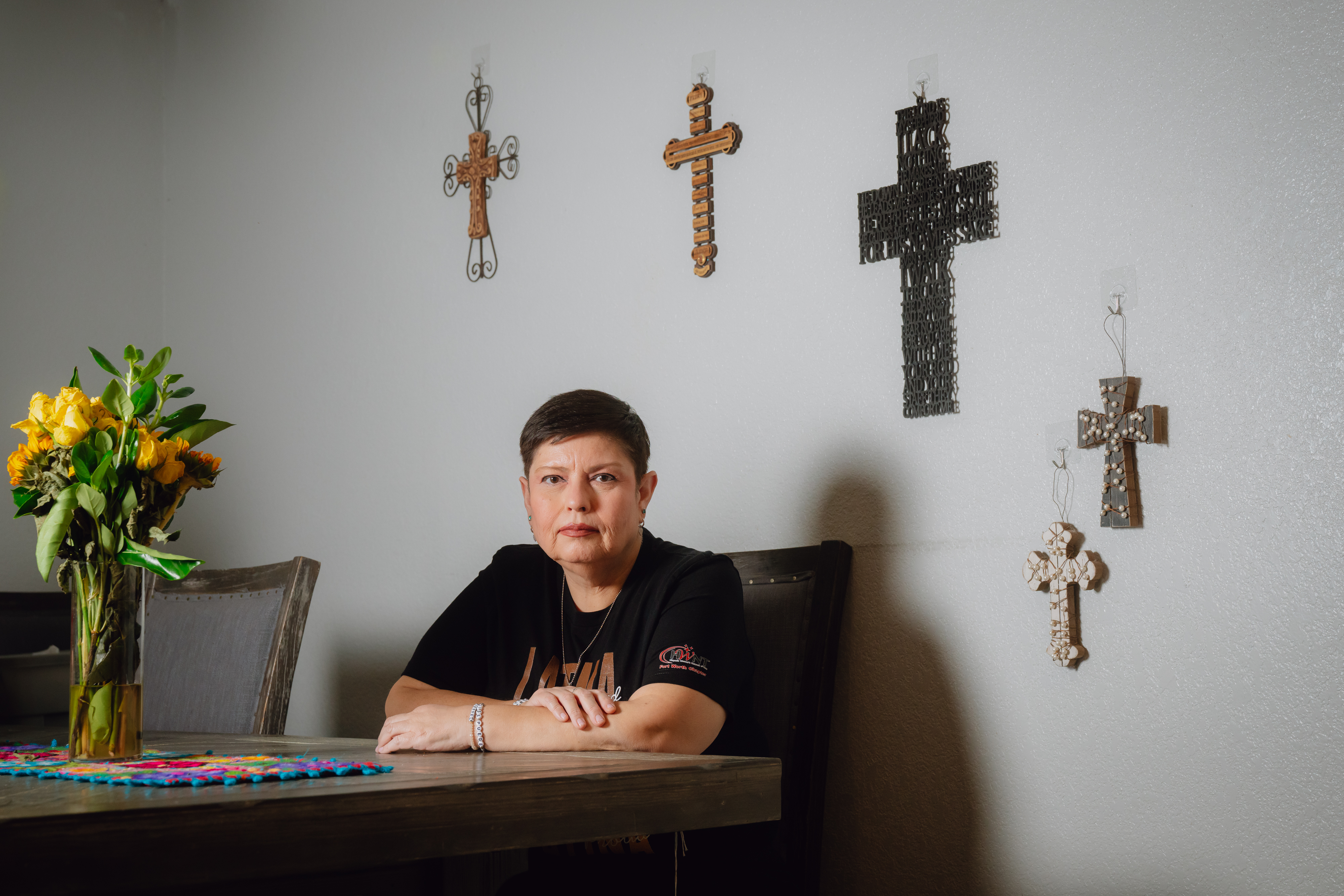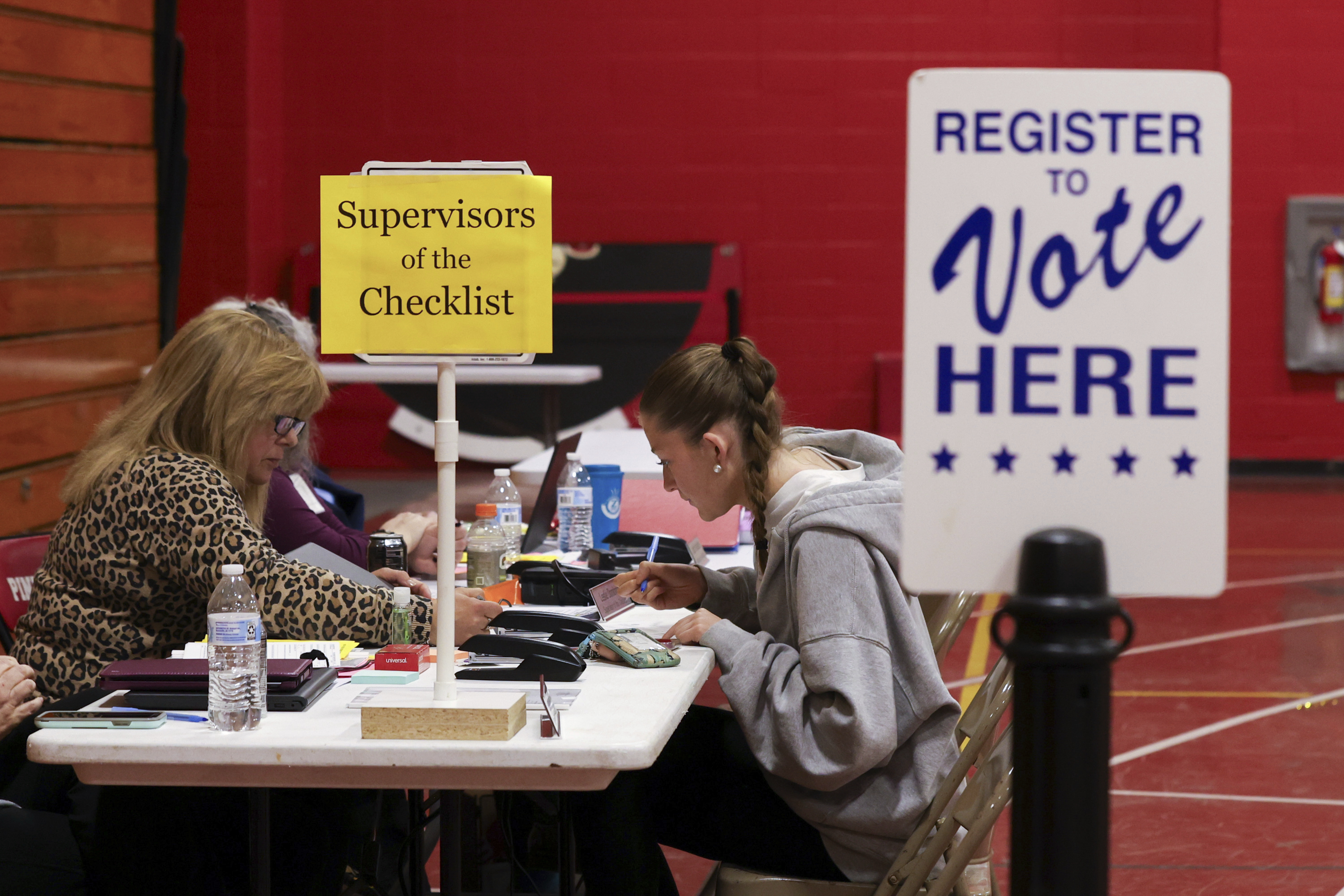Voting Rights Complicated: Married Women Struggle to Prove Citizenship
Several Republican-controlled states are implementing requirements for citizens to verify their citizenship status. In Texas, a contentious proposal is gaining traction that might complicate the registration process for qualified voters due to factors like altered names, lost documents, or inaccuracies in databases.
Supporters of voting rights along with Democrats argue that these proposals might pose significant challenges for individuals who have changed their names, such as those changing names due to marriage or divorce, since their official records may not align with what’s stated on their birth certificates. Proponents dismiss these concerns as exaggerated, asserting that the majority of U.S. citizens can easily demonstrate their citizenship status.
The new legislation forms part of an effort spearheaded by President Donald Trump under the Republican Party to impose stricter rules for casting votes. Voting by individuals who are not citizens is both unlawful and uncommon; however, efforts aimed at curbing such foreign voter participation might end up discouraging involvement from a far greater number of eligible domestic voters, as noted by election specialists.
The legislation approved by Texas lawmakers was recently greenlit by the state Senate, with GOP supporters aiming to push the bill through the House by next week before the legislative session concludes. While around twenty other states mull over comparable bills, Texas Republicans are contemplating modifications to their proposal to ensure smoother processes for name alterations, sources following the law say. This political struggle within the state reflects a broader national discussion about striking a balance between securing elections and ensuring voter accessibility.
Approximately 500,000 out of the 18.6 million registered voters in Texas would be required to furnish documentation proving their citizenship due to not having driver’s license numbers or Social Security numbers recorded with electoral authorities. The proposal also mandates that all newly registering voters must verify their citizenship through means such as a passport, birth certificate, or naturalization documents.
Not all individuals possess citizenship papers, and this legislation fails to outline procedures for dealing with documentation discrepancies due to name alterations. Other states with comparable regulations mandate that people changing their names provide proof such as marriage licenses or divorce judgments. Voting rights proponents argue that these requirements serve as further obstacles to exercising one’s right to vote.
“The probable result of this bill in Texas is that in an attempt to prevent a tiny fraction of non-citizens from voting, they will most likely end up disenfranchising a significantly greater number of eligible citizens,” explained Daniel Griffith, a senior policy director at Secure Democracy USA, a non-partisan organization dedicated to enhancing trust in electoral processes.
Trump and other Republicans have consistently propagated inaccurate statements suggesting that substantial numbers of immigrants are casting illegal votes. The President
signed an executive order
In March targeting the requirement of citizenship documentation for voter registration, however, a judge
blocked his directive
Last month, four states mandated that voters must present evidence of their citizenship, with additional states rapidly moving to adopt similar requirements. Those against these measures are gearing up for legal battles in courts.
Democrats anticipate potential alterations that might disproportionately impact low-income and minority voters, potentially reducing voter participation from those aligned with their party. However, a recent poll revealing that more Texas Republicans than Texas Democrats struggle to obtain citizenship documentation has sparked discussions regarding the legislation’s likely influence on both parties.
The proposed law in Texas would cover municipal, state, and federal election levels. However, evidence of citizenship wouldn’t be needed for voting in congressional and senatorial contests due to a ruling made by the Supreme Court back in 2013.
Rep. Carrie Isaac (R) stated that she believes this legislation would stop non-citizens from being incorrectly added to voter registration lists without causing issues for eligible voters who typically possess the necessary documentation or can easily acquire it.
I don’t think we need to worry,” Isaac stated. “I’m confident that most people won’t be affected by this legislation.
However, Austin resident Carrie King, who identifies as a Democrat, was so concerned about the legislation that she dedicated an entire day at the state Capitol last month to speak out against it. According to data from the U.S. Census Bureau, Texas had the nation’s second-worst turnout for voters last year, and King fears this bill could cause even lower engagement.
“I believe that individuals who were contemplating taking additional measures to register or to vote may become deterred, feel discouraged, experience intimidation, and ultimately decide not to cast their ballots,” she stated during an interview.
Varied perspectives among Texan females
Christina Adkins, who serves as the elections director for Texas Secretary of State Jane Nelson (R), informed legislators during a recent hearing that the proposed law does not mandate that names on birth certificates and other documentation must align with voters’ names. She explained, “Should your birth certificate bear a different name from what appears on your voter registration record, this bill states that such discrepancies would be acceptable.”
However, the law does not outline how to handle discrepancies when they arise, leaving each of Texas’s 254 county election officers to determine which documentation to accept. Voting rights supporters found comfort in Adkins’s remarks but expressed concern that election administrators might turn away certain voters due to variations in names. They also pointed out that the secretary of state’s office hasn’t provided official guidelines for these situations, raising fears that a different secretary of state might impose stricter criteria on accepted forms of identification. When approached with an interview request via her assistant, Adkins opted against participating.
Veronikah Warms, a voting rights policy lawyer with the nonpartisan organization Texas Civil Rights Project, stated her belief that approximately 8 out of every 10 women who alter their names following marriage would require a passport for voter registration. She noted that many individuals lack this document.
It costs around $130 to apply for a passport initially,” Warmth explained. “The price goes up further if you require expedited processing.
Dallas resident Isabella Russell-Ides, a democrat, remembered going through extensive procedures to expedite her airport security clearance application not long ago. Since her passport was outdated, she provided her birth certificate, divorce decree, marriage license, legal documents, and an old passport. “You have to verify your identity,” she explained. “But they refused to issue it.”
Russell-Ides, who is 77 years old, altered her last name twice due to two different marriages and also decided to change her first name at a later stage in her life. She mentioned that she might invest both time and resources into correcting her mismatched records but admitted it would likely be quite an arduous task. “However, it’s definitely going to be a massive inconvenience,” she stated.
Sandra Maria Garcia Rubio moved to Fort Worth from a small town in Durango, Mexico, bearing a name honoring her forebears. Three decades back, she decided to alter her name since she learned that 22 characters would not be accommodated on naturalization documents. To further simplify things, she made another adjustment when applying for her Social Security card and currently uses the moniker Sandra Garcia.

Garcia is already enrolled to vote and possesses a passport bearing her present name. However, she frets that discrepancies between her documents might cause others to question her eligibility to vote. Many naturalized citizens echo these worries since certain governmental records have not yet been revised to indicate their acquisition of citizenship.
Nothing I own goes together,” said Garcia, aged 54, who is a Democrat. “Will I still manage to cast my vote?
Jill Tate, vice president of legislation for the Texas Federation of Republican Women, said the measure will ensure “secure, honest elections.” It won’t place an undue burden on women, who are used to gathering and updating documents for major life events, she said.
“Women have been doing it for decades — they’re smart,” said Tate. “I don’t think we’re asking for too much here.”
Melissa, a supporter of Donald Trump from the Dallas-Fort Worth region, requested anonymity by using just her first name. She expressed her support for confirming that voters are U.S. citizens, despite this being somewhat inconvenient for her. Although her present surname differs from what’s listed on her birth certificate, her current name appears on her passport, she explained.
“If we’re making policies for our country, then we need to be sure it’s our people who are voting,” she said.
‘Opportunity for chaos’
Six years ago, Texas election authorities stated that around 100,000 voters might be non-citizens; however, a federal judge promptly
stopped their efforts
to eliminate them from the lists after discovering their actions were “clumsy” and “intimidating.”
Courts, election officers, and independent examinations have uncovered only a handful of cases where non-citizens voted. To illustrate, in 2018, a federal judge concluded that, at most, 39 non-citizens ended up on the voter registration lists in Kansas within an 19-year timeframe. The majority of these incidents appear to be due primarily to probable clerical mistakes.
In Texas, election authorities cancelled the voter registrations of 63 non-citizens and 124 individuals who failed to reply to queries regarding their citizenship status, as reported last year.
a report
from the department of state’s office.
Approximately 1.3 million Texans would find it challenging to verify their citizenship status, as stated.
a survey conducted by the University of Maryland
Last year, approximately 1% of Texas Republicans did not have evidence of citizenship, and around 7% found it difficult to obtain such proof. Conversely, almost all Texas Democrats possessed this documentation, though roughly 4% might struggle with acquiring it, as per the survey findings.
Tom Bonier, a senior advisor at the Democratic data company TargetSmart, stated that the Texas legislation might pose challenges for registering rural voters, infrequent voters, and married women—groups who frequently back Republican candidates.
“That could be a situation where the Republicans might inadvertently make a strategic mistake, possibly without fully considering the consequences,” he stated.
However, Republican pollster Whit Ayres expressed doubt. “The majority of MAGA supporters will likely have already registered or possess everything needed to register,” he stated, referring to the movement led by Trump known as Make America Great Again.
State Representative John Bucy III, a Democrat from Austin and deputy chair of the Texas House’s elections committee, mentioned he is attempting negotiations with Republicans to modify the legislation. His aim is to simplify the process for women who have changed their names to register to vote. However, despite these alterations, he anticipates significant challenges down the line.
“If this bill passes in any version, it will essentially be the epitome of voter suppression right here in the state of Texas,” he stated.
According to the nonpartisan organization Voting Rights Lab, legislation requiring proof of citizenship has been proposed in about half of U.S. states this year.

For over ten years, Arizona has mandated that voters demonstrate their citizenship. Recently, three additional states—Louisiana, New Hampshire, and Wyoming—have enacted comparable legislation. Legal challenges are currently underway in the states where these new laws have been implemented, including Arizona.
recently discovered
it had wrongly kept about 200,000 people on the voter rolls even though officials had no record that they had provided proof of citizenship.
If the legislation in Texas becomes law, litigation is almost certain. “We’re going to sue. We’re going to sue. We’re going to sue,” said Juan Proaño, the CEO of the League of United Latin American Citizens. Courts have considered citizenship requirements for more than a decade, and the new laws will test the boundaries of rulings that have so far curbed how far states can go.
The Texas measure would take effect in September if it is enacted, and election officials would be required to determine the citizenship status of voters already on the rolls by the end of the year. That effort could create disruptions for voters and election administrators just before the March 2026 primaries. Election officials who wrongly register noncitizens could be charged with crimes, according to the legislation.
Jessica White, who oversees elections in Parmer County located in the Texas Panhandle, mentioned that she is awaiting decisions from legislators before assessing the extent of the review required for her underpopulated region. Without any staff members, she noted that she might enlist additional helpers if necessary.
“There’s no point in worrying about it since it might never happen,” she stated.
Remi Garza, who oversees elections in Cameron County near the Mexican border, anticipates significant challenges ahead of the upcoming local elections. He is urging legislators to amend the laws so as to provide frontline election officers with additional preparation time before they have to enforce new regulations.
If this measure takes immediate effect right before the November local elections,” he stated, “it could pave the way for confusion.




